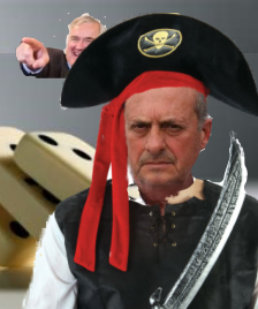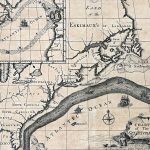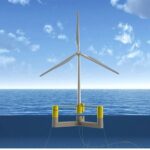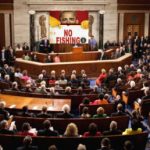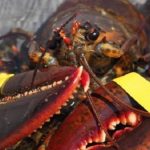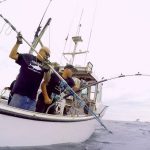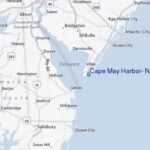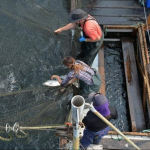The Shutdown
Don Cuddy
The National Marine Fisheries Service shut down Sector IX because the majority of its boats and quota belong to Carlos Rafael. This came without warning last November 22 and the order also waived the customary 30-day delay in effectiveness. Far from resolving anything this has exacerbated a bad situation by throwing a widening circle of business owners under the bus as the weeks drag by.
The bulk of Bay Fuel’s business came from the boats in Sector IX. At sea a New Bedford dragger will use around 600 gallons of diesel a day but fuel consumption literally dried up after NMFS ended the sector’s operations. “I’ve lost half a million dollars since November plus I’ve had to invest over $1 million in the last couple of years to build a government-mandated fuel barge that I’m still paying for,” said Martins, who is now Sector IX president. Bay Fuel is not the only shoreside business feeling the stress. Over at Crystal Ice winter groundfishing enables Joe Swift to keep his workers on the payroll year-round while the scallop fleet remains largely inactive. “It’s hurting us. I can’t lay my guys off. In the summer we put out five to six hundred tons of ice daily. It takes an experienced crew to do that,” he said. “If I lay people off then I might not get them back.”
The shutdown came at the heart of the winter fishing season. Tor Bendiksen of Reidar’s Manufacturing, a family-owned business now facing a perilous future, orders his net-making gear and supplies months in advance and only gets paid by fishermen when boats land their fish. But there won’t be any fish. “I have my suppliers calling in their notes and I sent my bills out to the boats but they can’t pay,” he said. “Now what? After a while the bank will come and say ‘We’re taking this from you’. It could all collapse and it won’t take long. In three or four months it could all be gone.”
There is a lot of anxiety building among the captains and crewmembers of the Sector IX boats whose jobs have essentially been eliminated. Tony Fernandes is the captain of the dragger Vila Nova do Corvo I.
“I’ve got a son in college, a house payment, car payment,” he said. “We’re scraping whatever we have put aside to pay that until we resolve this mess. They’re punishing the little guy. They should have taken their time and worked this out.”
The big fear is that with no fresh product on the dock suppliers will turn to the frozen market to meet demand. “If we lose our market because of this shutdown we are going to have a hard time getting it back,” said Sean Machie, captain of the Apollo.
The jobs that are lost are almost exclusively those of head of household earners, Kevin Rocha said. “It makes a big, big dent. Whether you are a captain, a boat owner or shoreside support, we all eat out of that same fish hold.”
If it continues the shutdown could also have far reaching effects that do not seem to have been considered, Richie Canastra said. “The only way you can get training as a fishermen is by being on a vessel and the captain is the teacher,” he said. The twenty active Sector IX boats represent the bulk of the groundfish fleet. “A lot of the captains are older. If these boats don’t go back out where is anyone going to learn how to fish?”
There is also a sense of grievance along the waterfront that NMFS is pursuing such a hard line with respect to overages on certain species when every year the fishermen give back approximately two million pounds of haddock that they are unable to catch because of regulatory constraints, with only a ten percent carryover of that quota applied to the following fishing year. Meanwhile we are importing frozen fish from Norway and Russia. Somebody needs to take ownership of this mess before it leaves a trail of destruction in this city. The clock is ticking.






